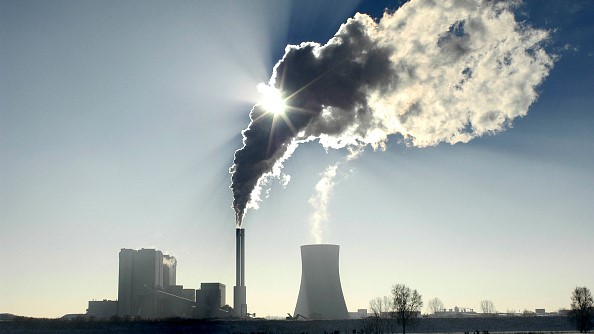“The likelihood of a decline in economic output in Germany this winter has increased significantly,” the Bundesbank said in its monthly report. “High uncertainty in natural gas supplies and skyrocketing prices could weigh heavily on households and businesses.” Overall, German inflation could hit 10 percent this fall, the report concluded; upside risks to inflation are high, especially if Russia shuts down gas supplies entirely. The Bundesbank warned that high inflation could trigger a spiral of wages and prices that could further fuel inflation.
Inflation in Germany has hovered around 8 percent in recent months, increasing the cost of living for people. About two-thirds of Germans have no opinion on the performance of Chancellor Scholz and his faction allies, according to a survey by polling agency Insa for Bild am Sonntag published on August 21. satisfy. Since taking office in December, German Chancellor Scholz has faced crisis after crisis, from the Russian-Ukrainian war, the energy crisis, soaring inflation to the current drought.
High energy dependence on Russia puts Germany’s manufacturing boom off
Germany’s thriving manufacturing industry once made Germany the “European economic engine”. The Wall Street Journal analyzed that the extraordinary achievements of German manufacturing mainly depend on four major engines: free and open global trade, the surge in Chinese demand, efficient domestic labor, and cheap Russian energy.
But now all four engines have problems. Trade bottlenecks, the pandemic and the Russian-Ukrainian war have disrupted supply chains, sent energy prices soaring and inflation hit record highs. In addition, China, Germany’s largest trading partner, has experienced a sharp slowdown in economic growth and an aging and shrinking workforce. At the same time, Germany’s own workforce is likely to shrink by around 5 million over the next decade due to an aging population.
Manufacturing in Germany depends on energy. Germany has encouraged the use of Russian oil and gas for decades, saving costs but making Germany dependent. In Germany’s natural gas, coal and oil consumption, the proportion of imports from Russia accounted for 55%, 50% and 35% respectively.
Although Germany is now urgently looking for other suppliers and restarting its domestic energy infrastructure, this does not seem to save the huge German manufacturing industry immediately. In response to high energy prices, nearly one in six industrial companies in Germany have now cut or given up production, according to a survey released by the German Chamber of Commerce and Industry (DIHK) at the end of July.
German Institute for Economic Research: German companies’ business in China continues on the wrong path
What worries the outside world is that Germany does not seem to have learned its lesson from the issue of relying on Russian energy. The latest survey report of the German Institute for Economic Research (IW) shows that the development trend of the German economy’s dependence on the Chinese market has deepened in the first half of this year.
The report reads: Germany’s direct investment in China hit a record high in the first half of this year. Statistics show that from January to June this year, the direct investment of German companies in China reached 10 billion euros. Prior to this, since 2000, the highest half-year direct investment of German companies in China was 6.2 billion euros. However, during the same period, Germany’s exports to China fell sharply, and Germany’s trade deficit between the two countries also set a new record again.
The report’s author, Jürgen Matthes, pointed out in an interview with Reuters that “the German economy is far more dependent on China than the Chinese economy is on Germany.” Germany’s economic dependence on China could turn into a political nuisance, he said, given Beijing’s performance in the Russian-Ukrainian war and the growing threat of force against Taiwan. If China is sanctioned by the West, companies that rely heavily on Chinese imports will face massive supply bottlenecks. Mattis therefore suggested that German companies should adjust their business in China as soon as possible.
The German Institute for Economic Research has warned that trade imbalances with China are growing, calling for a policy shift that reduces incentives and incentives to expand business in China. The institute recommends developing trade and investment ties with other emerging economies, especially those in Asia.
The four EU economies have the highest chance of recession in Germany and the lowest in Spain
The British “Guardian” on August 20 compared the possibility of recession in the four major EU economies – Germany, France, Italy and Spain, and concluded that: in the energy crisis, drought, supply chain disruption3 Germany, which is the core of the big storm, has the highest chance of recession, Italy ranks second, and France third. In contrast, although Spain has the highest inflation rate among the four countries, because of its relatively good economic structure, it does not rely on Russian energy, the least likely to fall into recession.
The International Monetary Fund (IMF) predicts that Spain’s economic growth rate (GDP) will be 4% and 2% this year and next, the best performance among the four major economies; Italy’s estimated growth next year is 0.7%, the worst among them.
Carla Subirana Artús, a policy analyst at the Bank of England, wrote in an article on the 15th that Spain has successfully decentralised its manufacturing and export structure and transformed itself into a top auto parts manufacturer in Europe. The source of foreign exchange is no longer high. Instead, relying on tourism has boosted exports of chemicals, pharmaceuticals, machinery and professional services.
